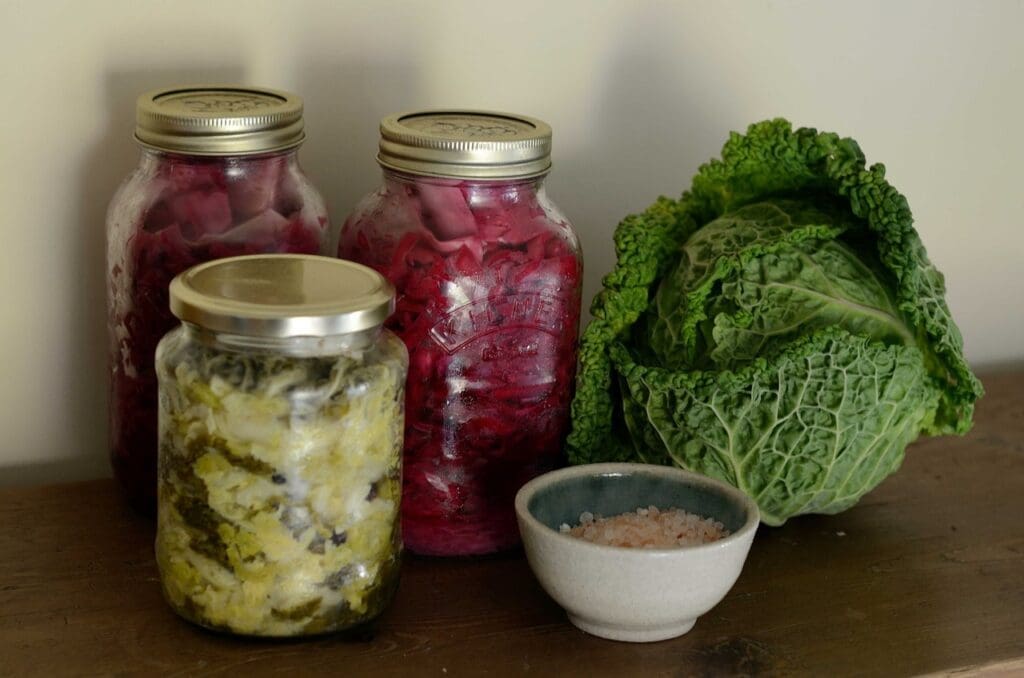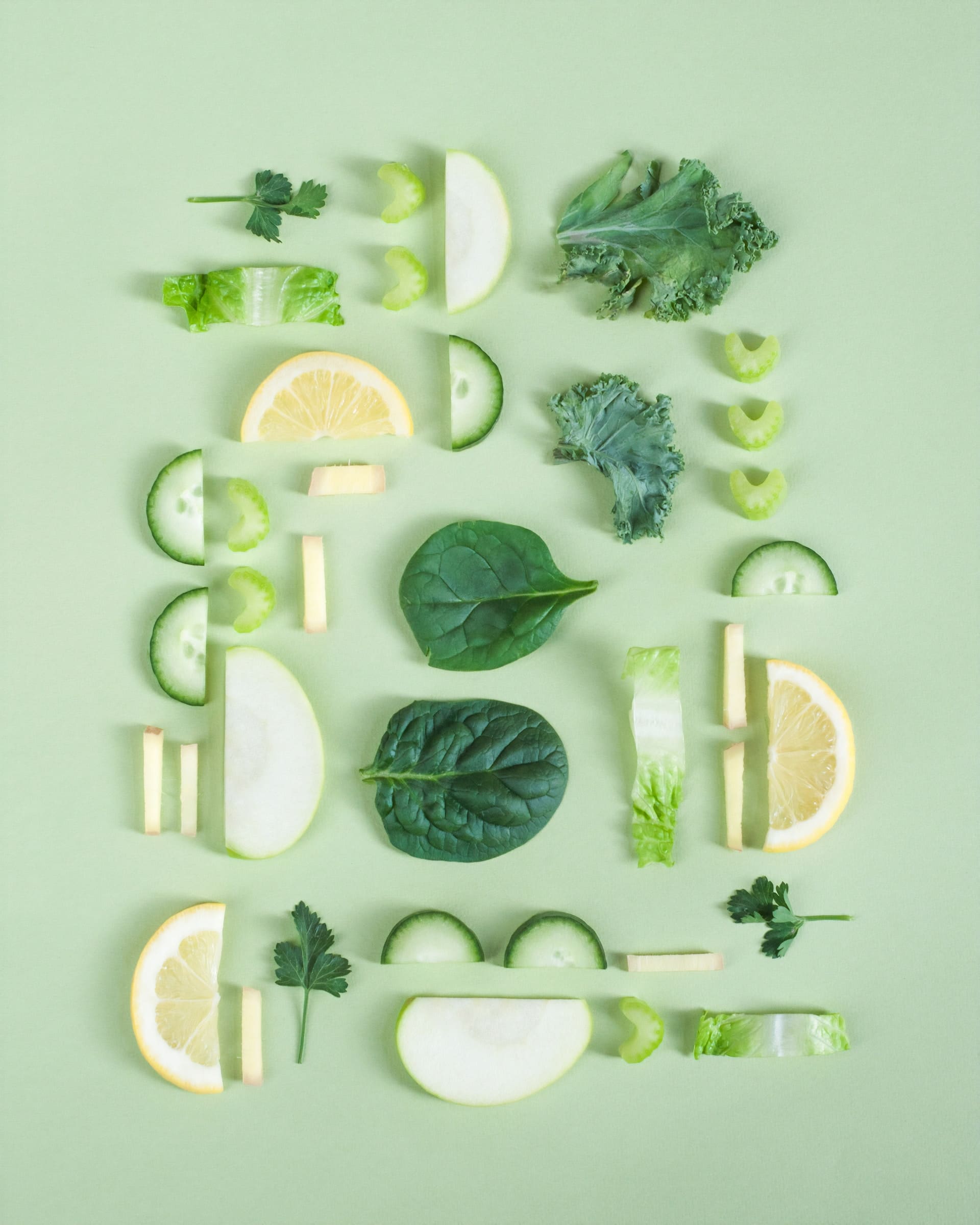Understanding the human body can be akin to comprehending the universe – intricate, diverse, and ever-evolving. One such crucial frontier within us is the gut and its rich, complex microbiome. In this journey of exploration, we’ll unravel the mysteries of gut health, its profound connection with our physical and mental health, and celebrate the art of gut-friendly culinary with 11 simple recipes. So grab your explorer’s hat and prepare for a voyage within!
What is Gut Health and Why is it Important?
Our bodies are home to trillions of microorganisms, with the most dense and diverse communities found within our guts. This complex network of bacteria in the gut, collectively known as the gut microbiome, plays an indispensable role in our overall health. Let’s delve into this intricate microbiological landscape.
Understanding the Gut Microbiome
Your gut microbiome consists of numerous bacteria that live in your gut, contributing to a balanced gut microbiome. Each individual’s gut microbiome is as unique as their fingerprint, hosting an impressive range of species contributing to various health benefits.
These bacteria play a critical role in digesting food, regulating our immune system, protecting against other bacteria that cause diseases, and producing essential vitamins. This community of gut microbes fosters a symbiotic relationship with us, their human hosts, impacting not just our digestive health but our overall well-being.
How the Digestive System Works
Your digestive system, a vital element of the gut ecosystem, is like a bustling city, with various sectors contributing to the processing of the food you eat. Beginning in the mouth and concluding in the bowel, the digestive process relies on the help of the diverse gut microbiome to break down food, extract nutrients, and manage waste.
Signs of an Unhealthy Gut
Poor gut health can manifest in several ways. Symptoms of an unhealthy gut can include chronic upset stomach, constant fatigue, unintentional weight changes, sleep disturbances, and skin irritations. Additionally, poor gut health can lead to increased systemic inflammation, contributing to a plethora of health issues, from the familiar discomfort of bloat to more severe issues like IBS.
How Gut Health Affects Overall Health
The health of your gut has been linked to numerous aspects of overall health. A balanced gut can impact everything from your mood to your immune system. On the other hand, an unhealthy gut may increase systemic inflammation, leading to various health conditions and affecting both physical and mental health.
Science-Backed Ways to Support Gut Health
There are several ways to improve gut health. A key aspect is nurturing the good bacteria in your gut through diet, lifestyle, and certain supplements. Regular physical activity, a good night’s sleep, and stress management are also essential contributors to a healthy gut.

How to Improve Your Gut Health Naturally
Just as a garden thrives with the right care and conditions, so does your gut microbiome. Let’s delve into some natural ways to improve gut health.
Incorporating Probiotics into Your Diet
Probiotics are living microorganisms that, when ingested, can offer health benefits, particularly for your digestive system. Foods rich in probiotics, like yogurt and kefir, may help improve your gut by bolstering the population of beneficial gut bacteria.
The Power of Fermented Foods for Gut Health
Fermented foods like sauerkraut, kimchi, and kombucha have been cherished across cultures for centuries. They are a powerhouse of probiotics, stimulating the growth of beneficial gut bacteria. By introducing these into your diet, you can help improve your gut microbiome and digestion.
The Impact of Ultra-Processed Foods on Gut Health
The world of ultra-processed foods is often tempting with its convenience and flavors. However, these foods can negatively impact your gut health, leading to bloat, imbalance in gut bacteria, and reduced diversity in gut microbiome.
Understanding Leaky Gut Syndrome and How to Address It
Leaky Gut Syndrome, a condition that affects the gut lining, can lead to toxins leaking into your bloodstream. A diverse diet rich in fibers, fruits, vegetables, lean protein, and healthy fats can support a healthy gut and repair the gut barrier.

The Gut-Mind Connection: How Gut Health Affects Mental Health
The gut-brain axis, a bi-directional communication network between your gut and brain, has emerged as a fascinating field of research.
Anxiety and Depression: The Role of Gut Health
Recent studies suggest that an unhealthy gut may contribute to anxiety and depression. Conversely, a balanced gut microbiome might help improve these mental health conditions.
The Science-Backed Ways Gut Health Impacts Mental Health
Our gut microbes produce neurotransmitters that our brains use for mood regulation. It’s suggested that a healthy gut microbiome might impact the production of these neurotransmitters, thereby influencing our mental health.
Nurturing Your Gut Microbiome for Better Mental Well-being
An intentional focus on maintaining a balanced gut through a diet rich in probiotics, prebiotics, and fiber can potentially benefit our mental well-being.
Foods To Improve Your Gut Health: 11 Simple Recipes
In the kitchen laboratory, you can conjure up magic not just for your taste buds, but also for your gut health. Let’s explore some simple recipes that your gut will love.
1. Gut-Boosting Smoothie Bowl
Ingredients:
- 1 ripe banana
- 1 cup mixed berries
- 1 cup spinach
- 1/2 cup Greek yogurt
- 1 tablespoon chia seeds
Blend all the ingredients, except the chia seeds, until smooth. Pour into a bowl and sprinkle chia seeds on top. This smoothie bowl combines the power of probiotics in Greek yogurt with the high fiber content of fruits and spinach.
2. Fermented Vegetable Medley
Ingredients:
- 1 head of cabbage
- 4 large carrots
- 4 radishes
- 2 tablespoons sea salt
Shred the vegetables, mix with salt, and pack them into a jar. Let it ferment for about two weeks. Fermented vegetables are an excellent source of probiotics, helping to boost your gut health.
3. Gut-Healing Chicken Bone Broth
Ingredients:
- 1 chicken carcass
- 2 carrots, chopped
- 2 celery stalks, chopped
- 1 onion, quartered
- 2 cloves of garlic
- 1 tablespoon apple cider vinegar
Combine all ingredients in a large pot, cover with water, and simmer for 12-24 hours. Strain the broth and store it in the fridge. The collagen from the bones can help restore your gut lining.
4. Probiotic-Rich Yogurt Parfait
Ingredients:
- 1 cup Greek yogurt
- 1/2 cup granola
- 1/2 cup mixed berries
Layer Greek yogurt, granola, and mixed berries in a glass. This parfait is not only a treat to your taste buds but also a delight for your gut, thanks to the probiotics in the Greek yogurt.
5. Gut-Friendly Salmon and Quinoa Salad
Ingredients:
- 1 salmon fillet
- 1 cup cooked quinoa
- 1 cup mixed greens
- 1/2 avocado, sliced
- A handful of cherry tomatoes
Pan-sear the salmon fillet and assemble all ingredients in a bowl. Salmon is rich in omega-3 fatty acids, which are beneficial for gut health.
6. Kimchi
Ingredients:
- 1 head napa cabbage
- 1/4 cup sea salt
- 1 tablespoon grated garlic
- 1 teaspoon grated ginger
- 1 teaspoon sugar
- 2-3 tablespoons Korean red pepper flakes
Cut the cabbage, sprinkle with salt, and leave it for 2 hours. Rinse the cabbage under cold water three times. Make a paste with the remaining ingredients and mix it with the cabbage. Let it ferment for 1-2 weeks.
7. Tempeh Stir-fry
Ingredients:
- 200g tempeh, sliced
- 1 red bell pepper, sliced
- 1 yellow bell pepper, sliced
- 1 onion, sliced
- 2 tablespoons soy sauce
- 1 tablespoon honey
Stir-fry tempeh and vegetables in a pan, then add soy sauce and honey. Tempeh is a fermented food, which means it’s rich in probiotics.
8. Probiotic Guacamole
Ingredients:
- 2 ripe avocados
- 1/2 cup Greek yogurt
- 1 tomato, diced
- 1/2 onion, diced
- 1 lime, juiced
- Salt and pepper to taste
Mash the avocados and mix with the rest of the ingredients. Serve with whole grain crackers or vegetable sticks.
9. Overnight Chia Pudding
Ingredients:
- 1/4 cup chia seeds
- 1 cup almond milk
- 1 tablespoon honey
Mix all ingredients in a jar and leave it overnight in the fridge. Chia seeds are an excellent source of fiber, which can support a healthy gut.
10. Miso Soup
Ingredients:
- 1 tablespoon miso paste
- 2 cups water
- 1/2 cup tofu, cubed
- 1 green onion, chopped
Dissolve miso paste in warm water, add tofu and simmer for 2 minutes. Top with green onions. Miso is a fermented soy product rich in essential minerals and a good source of various B vitamins, vitamins E, K, and folic acid.

11. Sauerkraut
Ingredients:
- 1 medium head of cabbage
- 1-3 tablespoons sea salt
Shred the cabbage and mix with salt in a bowl. Pack it tightly into a mason jar and let it ferment for at least two weeks. The end product is a gut-friendly, probiotic-rich food.
Supplements to Support Gut Health
To further support a healthy gut, consider including the right supplements into your routine.
The Benefits of Probiotic Supplements for Gut Health
Probiotic supplements can give your gut health an additional boost. They add to your gut’s good bacteria, promoting a healthy digestive tract and immune system.
Choosing the Right Probiotic Supplement for You
Not all probiotic supplements are the same. It’s crucial to choose a supplement that contains the specific strains of bacteria beneficial for your health condition.
Other Supplements That Promote a Healthy Gut
Other helpful supplements include prebiotics and fiber supplements. They provide the necessary nourishment for the good bacteria in your gut and can help maintain a healthy digestive system.
Incorporating Supplements into Your Gut Health Routine
Before incorporating any supplements into your routine, it’s important to consult a healthcare professional.
The Role of Prebiotics in Nurturing a Healthy Gut Microbiome
Just like probiotics, prebiotics play an essential role in gut health. They are types of dietary fiber that feed the friendly bacteria in your gut, helping them to grow and thrive.
Conclusion
In conclusion, it’s evident that the importance of gut health goes beyond a simple stomach issue. The symbiotic relationship between our gut health and our overall physical and mental health is a topic that we should all give more attention to. By understanding our gut microbiome and taking steps to support its health, we can set the stage for holistic health and wellness.
References:
- The Gut: Where Bacteria and Immune System Meet – Johns Hopkins Medicine
- The Brain-Gut Connection – Hopkins Medicine
Subscribe to our newsletter for related content
FAQs
Q1. What drink flushes out your intestines?
One popular drink for flushing out the intestines is a mixture of warm water and lemon juice. The acidity of lemon helps stimulate digestion and promote bowel movements, aiding in the flushing out of toxins and waste from the intestines.
Q2. What is the best drink to flush out toxins?
Green tea is often considered one of the best drinks to flush out toxins from the body. It is rich in antioxidants that help eliminate harmful substances and support the body’s natural detoxification processes.
Q3. What is the best drink to flush your system home remedies?
One effective home remedy drink to flush your system is a combination of water, apple cider vinegar, and a dash of honey. Apple cider vinegar contains acetic acid, which may help support digestion and detoxification.
Q4. How do you completely detox your gut?
To completely detoxify your gut, focus on consuming a diet rich in whole, unprocessed foods. Boost your fiber intake by incorporating a wide variety of fruits, vegetables, and whole grains into your daily meals. These wholesome foods are packed with fiber, which supports digestive health and keeps you feeling satisfied and energized throughout the day. Stay hydrated, engage in regular physical activity, and consider incorporating gut-cleansing foods and probiotics into your diet.
Q5. What naturally kills bad bacteria in the gut?
Several natural foods and herbs have antimicrobial properties that can help kill bad bacteria in the gut. Examples include garlic, ginger, oregano, and coconut oil. Consuming these foods as part of a balanced diet may support a healthy gut microbiome.
Q6. What foods reset your gut?
Foods that can help reset your gut include fiber-rich fruits and vegetables, fermented foods like yogurt and sauerkraut, bone broth, and healthy fats such as avocado and olive oil. These foods provide nourishment and support the growth of beneficial gut bacteria.
Q7. What foods starve bad gut bacteria?
To starve bad gut bacteria, it is recommended to limit the intake of processed foods, sugar, artificial sweeteners, and unhealthy fats. These substances can promote the growth of harmful bacteria in the gut. Instead, focus on consuming whole, unprocessed foods that support a healthy gut environment.
Q8. What fruit is best for gut health?
Berries, such as blueberries, raspberries, and strawberries, are excellent fruits for gut health. They are rich in fiber, antioxidants, and polyphenols, which can promote a healthy gut microbiome and support digestion.
Q9. How can I reset my gut in 3 days?
While a complete gut reset may take longer, you can start the process in three days by following a clean eating plan. This includes consuming whole, unprocessed foods, staying hydrated, avoiding processed sugar and alcohol, and incorporating gut-friendly foods like fermented vegetables and probiotic-rich yogurt.
Q10. What are the signs of a leaky gut?
Signs of a leaky gut may include bloating, gas, stomach pain, diarrhea, food sensitivities, fatigue, skin issues, and mood disturbances. However, these symptoms can be associated with various other conditions, so it’s important to consult with a healthcare professional for an accurate diagnosis.
Q11. How can I clean my stomach and intestines naturally?
You can naturally clean your stomach and intestines by incorporating dietary changes such as increasing fiber intake, staying hydrated, consuming probiotic-rich foods, avoiding processed and fried foods, and reducing stress levels through relaxation techniques or exercise.
Q12. How long does it take to flush your gut?
The time it takes to flush your gut can vary depending on factors such as your diet, lifestyle, and individual circumstances. It is not an overnight process and may take weeks or even months to achieve significant results.





















